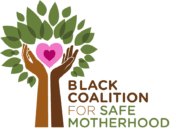Mitigating Disparities in Maternity Care
During the last two trimesters of her pregnancy, graduate student Amber Rose Isaac’s concerns were not heard by her doctors in telemedicine visits, and they would not see her in-person. Amber was at risk for complications due to an abnormality in her blood, detected in February of last year, but not addressed. On April 17 Amber tweeted her frustration in dealing with ‘incompetent doctors’ for two trimesters. She died 4 days later during the birth of her son.
Since the killing of George Floyd, viral videos of verbal and physical attacks on people of color by white people – on the streets, in coffee shops, parks, and classrooms – have made racism in our society plainly visible to many of those who were previously in denial. Now the spotlight is shining on the medical profession.
As the case of Amber Rose Isaac suggests, eliminating racism in maternity care will not come easily, despite the proclamations by departments of health and medical professional organizations that racism is a public health emergency. Black people, inside and outside of the medical profession, are skeptical that these alarms will bring change.
Still, if we listen to the conversation amongst Black researchers, midwives, doctors, and doulas, solid prescriptions exist that may increase the chances of substantive and meaningful change. Here are just a few of many promising maternal health initiatives to amplify Black mother’s voices and improve their care.
Led by Karen A. Scott, MD, Associate Professor and Applied Epidemiologist at the University of California San Francisco, SACRED Birth is a Black women-led quality improvement research study, designed for and with Black mothers and birthing people who share their patient experiences of care in hospital settings during labor, birth, and postpartum. The study aims to validate the first ever Patient Reported Experience Measure of OBstetric racism©, to help hospitals, health plans, scientists, funders, and the public better understand how racism and other forms of discrimination and neglect affect the way hospitals provide care, services, and to support to Black mothers and birthing people during labor, birth, and postpartum.
On the other side of the country, Midwife Jennie Joseph of Orlando, Florida founded The National Perinatal Task Force (NPTF), a consortium of community-based health centers or organizations who have committed to offering respectful, compassionate, and person-centered maternity care. In 2020 she established Commonsense Childbirth School of Midwifery, the first Black owned and nationally accredited school of midwifery in the US. Joseph has shown how supportive and easy access to prenatal care, ‘The JJ Way,’ can eliminate racial disparities in prematurity and low birthweight.
The Black Coalition for Safe Motherhood, where I am a principal, promotes healthcare advocacy of birthing people to counter maternity workforce disrespect. Participants in community workshops practice asserting their rights to respectful care, amplify their voices, and push back against racism in medicine.
These are just a few of the interventions developed by Black women with very limited resources, compared to those of the mainstream medical profession, which gets 23% of its Medicaid income from maternity services and has the worst maternal mortality rates among wealthy nations. Maternity care
professionals and activists in the Black community are leading the charge to improve our performance and to bring respect and equity to maternity care. Real change starts when we begin to listen to them.
Dr. Leslie Farrington is a retired physician from New York with over 30 years of expertise in Obstetrics/Gynecology and Well Woman Care. Leslie’s first birth, as an undergraduate at Johns Hopkins University, was attended by a midwife.


